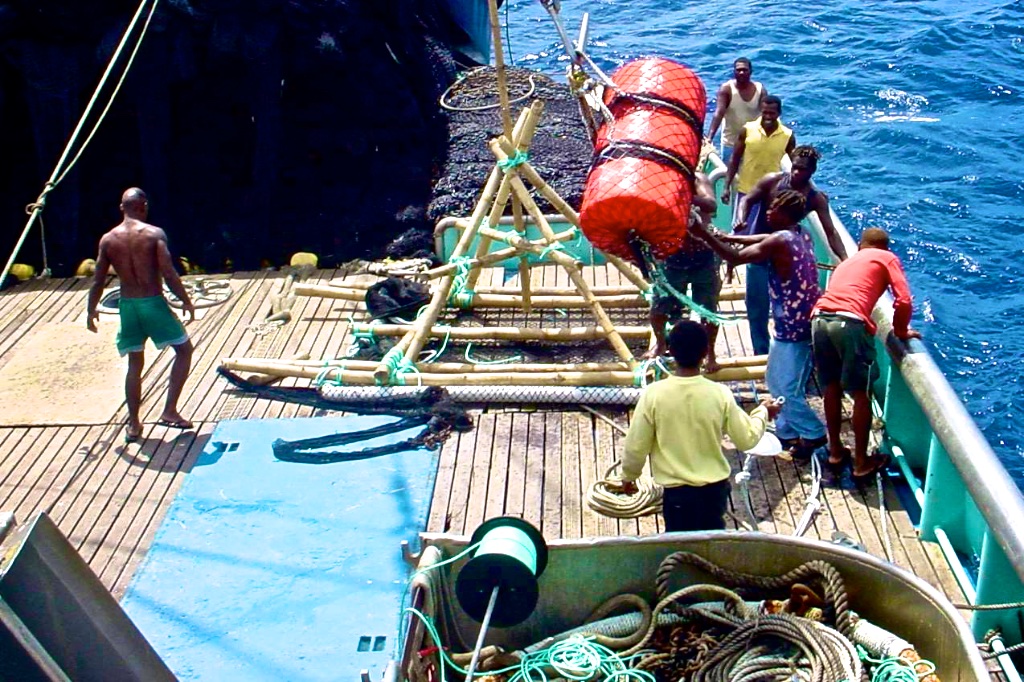The Parties to Nauru Agreement (PNA) passed an initiative to trial a charge of US$1,000 on each Fish Aggregating Device (FAD) set in PNA waters.
In what was dubbed the "free school initiative," Ministers at the annual PNA ministerial meeting in Federated States of Micronesia's capital Palikir, decided that a US$1,000 fee paid on top of the Vessel Day Scheme fee would be good incentive "not to set FADs" on free schools of fish.
From January 2016 next year PNA member nations across the board will try out the new initiative to levy a fee of $1000 on each ship that sets FADs in a fishing day.
The decision in Pohnpei follows a PNA Ministerial endorsement to look into the possibility of such an initiative on FADs when they met in Tuvalu last year; something the host nation and Tokelau were particularly keen on. These are two of the smallest and most vulnerable members of the PNA and fishing in their waters is very dependant on the use of FADs.
Currently FADs are managed in the region at a WCPFC level with a four month closure of FAD fishing which is aimed at primarily reducing juvenile Bigeye, juvenile Yellowfin and other bycatches that are taken during FAD use.
Dr Aqorau said for Tokelau and Tuvalu and some other PNA members this is a crippling burden on them in terms of reduced revenue because it makes fishing in their waters much less attractive to the boats on which they depend for their revenue.
These two countries like other PNA members remain committed to Bigeye conservation but looking for a way to reduce FAD use that is less a burden on them.
The "free school incentive" would provide a positive incentive for vessels to fish on free schools while leaving them free to manage their operations in a way that would be most profitable for them.
At the same time it will still be aimed at reducing FAD use at a lower cost to the industry and therefore with less impact on PNA member countries especially those where fishing is more dependant on FADs
The ministerial decision means fishing vessels will pay US$1,000 per day for any fishing day in which sets are made on FADs.
The PNA member nations will first start the trial in 2016 to see the best way to implement it and then return to report their findings to the PNA ministerial meeting.
This week’s annual policy meeting will provide the venue for PNA ministers to continue to strengthen control and management of the PNA fishery, which accounts for 70-80% of the western and central Pacific tuna catch, and 30-40%of the global raw material for canning.
